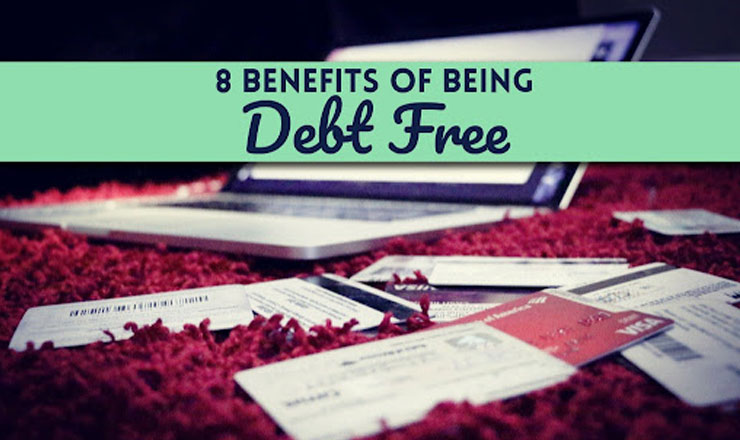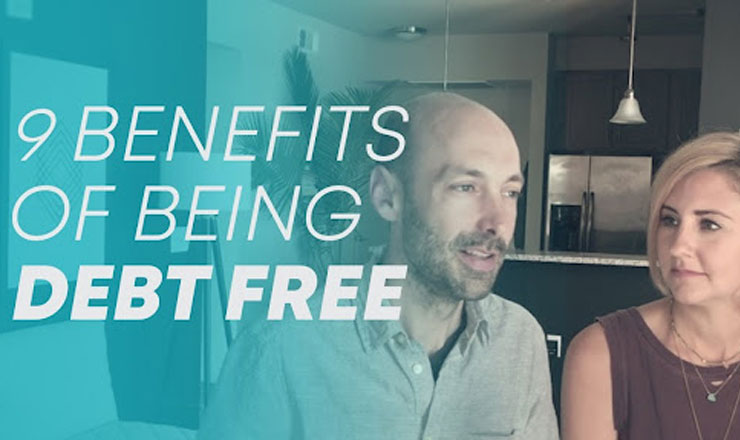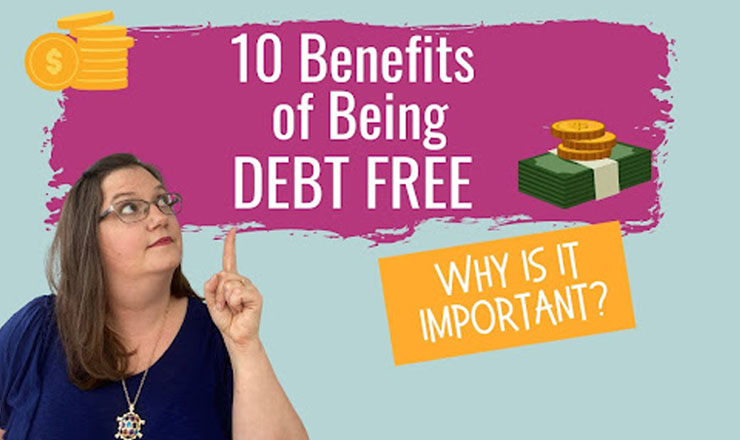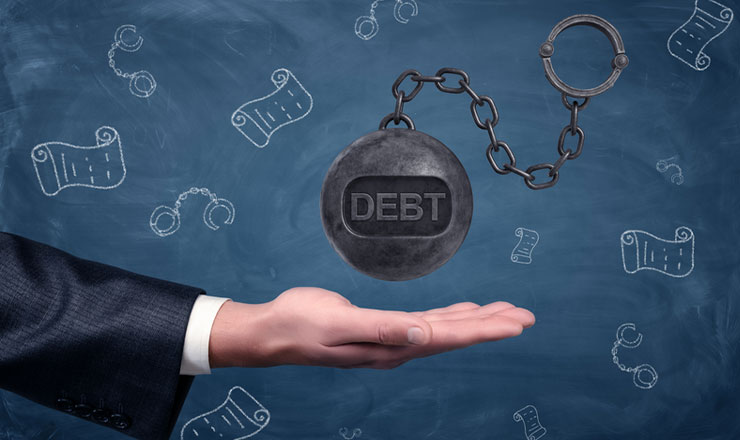You’ll almost certainly encounter some sort of debt throughout your life. Certain loans represent accomplishments in your life. However, it might start to feel daunting if you find yourself racking up credit card debt on top of your mortgage, school loan, or auto loan obligations. Your financial and mental health, as well as the quality of your relationships with others, can all benefit from paying off your debt. With the aid of our debt consolidation loan guide, we can assist you in comprehending how to pay off your debt. But first, think about these advantages of freedom debt relief and detail notes on the debt consolidation loan.
Advantages of being Debt-free Financially

You have access to more of your revenue
You can now spend or save anyway. you like the money that was used to pay off your debt. In other words, you’ll feel as though you’re earning more money by paying less. You may take advantage of the independence and financial flexibility that being debt-free gives, whether you use the money for smaller things like monthly costs or major ones like your next vacation.
Financial risk is lower
If you are in debt and don’t have an emergency fund, things can get dicey very quickly. If you experience financial difficulty or lose your job. Living debt-free gives your budget some wiggle room, giving you a safety net. You can fall back on if things go wrong that are not dependent on making debt payments. Aside from not having to worry about late fees or, in a worst-case scenario, losing your home or car, being debt-free also means that you won’t have to.
Enhanced credit rating

You can gain a better credit score by paying off your debt, which has many advantages. You may be able to acquire reduced insurance premiums and a better interest rate on any future loans. If you have a higher credit score. Employers or landlords. Those who use credit ratings as a gauge of dependability may find you more appealing if you have good credit.
Early Retirement
You can use the extra funds you free up by taking the time to pay off your debt now to fund your retirement plans. You can put more money into a separate bank account for your future financial goals and perhaps retire earlier than you had intended if you are not subject to the regular debt payment obligation.
Advantages of living Debt-free on the Mind

less Anxiety
Unwanted tension can be greatly increased when you live in financial instability. Since you won’t be concerned with how to pay the bills or experience a financial shock, being debt-free can reduce your stress levels. Spending time worrying about money might be substituted with time spent having fun with friends and family.
Better physical and mental well-being
Both practically and symbolically, being in debt may be a pain. Health issues including insomnia, discomfort, high blood pressure, or simply feeling exhausted can all be physical signs of stress. Your physical well-being improves when you take care of your mental well-being. Getting out of debt can help you sleep at night and lessen your worries about money.
A Greater Sense of self

The truth about their debt may be kept from their friends, or they may maintain the façade of an ideal existence. You can be freed from this weight by leading a debt-free lifestyle, which will also make you feel proud of your financial standing and give you more confidence.
Enhanced productivity
Your productivity may suffer as a result of debt. Because you may find it difficult to focus or become distracted by financial concerns. You can focus more clearly and pay attention for longer when you are debt-free. This increased cognitive capacity can aid in decision-making, and self-control, and generally assist your professional life.
Advantages of Debt-free life for Relationships

Be a better coworker.
The way we treat others can be negatively impacted by financial stress. Anxiety about debt can manifest as impatience, rage, or the inability to pay attention to what your friends and coworkers are saying. Paying off your debt might reduce this tension, which may enhance your capacity to interact and work collaboratively in an authentic way with those around you. Additionally, you might discover that you’re more inclined than you previously were to assist and support those in your social and professional networks.
Become a better Companion.
Stress over debt can make one or both partners in a relationship irritable and quick to anger. As you demonstrate your ability to handle challenges and make joint financial decisions, paying off your debt can deepen your relationship.
Improve your Parenting or Caregiving.
The time you would often spend paying bills, contacting the bank, and generally worrying about providing for your family is given to you back when you are debt-free. It entails being able to provide your care recipients, including your children, more of your undivided attention. Being debt-free can also lift your spirits and increase your ability to enjoy yourself with the people you care about.
Where should I Begin?

Getting out of debt can have a positive effect on nearly every aspect of your life, as mentioned in the advantages above. You can start the journey to a debt-free life right now by reading our debt consolidation advice or calling us at 132 032 for financial assistance.
Conclusion
These are only a few of the things you can accomplish if you pay off your debt, but there are countless other possibilities to take into account. Instead of living a life that was designed to pay off endless bills, you can design the life you want once you are finally debt-free.
It’s imperative to keep your eye on the prize and consider what your life will be like once you achieve your goal if you’re ready to become debt-free or are currently undergoing a debt repayment plan. It’s challenging to enjoy the fruits of your labor when all of your money is going to someone else because there is so much more to life than debt and “stuff.”
FAQS
Why is having debt beneficial?
In general, debt that aids in achieving goals like home ownership, education costs, or business startup may be seen as beneficial. If you have a history of responsible credit use and your account activity is recorded to credit agencies, good debt may also help you improve your credit.
What advantages do debt-free living offer?
Progressive Yes, living debt-free makes it
simpler to put money aside. … anxiety freedom debt relief. What if you didn’t owe any money? More enjoyment.
Without any debt, financing your dreams becomes much simpler.
The right to choose, improved financial security, improved security, etc.
Is debt-free living preferable?
Without debt, you can concentrate on accumulating larger sums of savings, making investments with those funds, and simply enjoying greater financial peace of mind. But there are times when it doesn’t make sense to pay off all your debt.
How much Debt is the US in?
As of November 2022, maintaining the debt will cost $103 billion, or 11% of all federal spending. Over the previous ten years, the national debt relief has grown yearly.
how to pay off credit card debt
How to pay off credit card Debt?
Use a credit card for balance transfers.
Debt consolidation using a personal loan
Take out a loan from family
Initially, pay off high-interest debt
Pay off the balance that is the least.
How to get out of Debt?
List all the debts you have.
Determine Your Monthly Payment Capacity.
Lower the interest rates.
Every month, pay your bills on time.
Being Strict Going Forward.
How to calculate Debt to income ratio?
Below are the steps of Debt to income ratio:
Step 1: Add up all of your monthly expenses, such as:
Monthly loan or Rent Payment.
Child support or alimony payments are made each month.
Student, auto, and other loan payments are made on a monthly basis.
Monthly payments on credit cards (use the minimum payment)
Numerous debts.
Step 2: By your gross monthly income, which is your income before taxes, divide the total.
Step 3: Your DTI, which appears as a percentage, is the outcome. Your risk to lenders decreases as your DTI decreases.
How to consolidate credit card debt?
Use a balance transfer credit card to refinance.
Utilize a personal loan to consolidate.
Utilize your home’s equity.
Think of 401(k) investments.
Create a debt management strategy.
You May Also Like
Examples of Business Analytics – What is Business Analytics?
How To Make a CV – Easy Methods to Make Perfect Curriculum Vitae